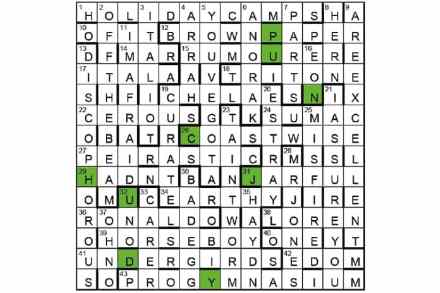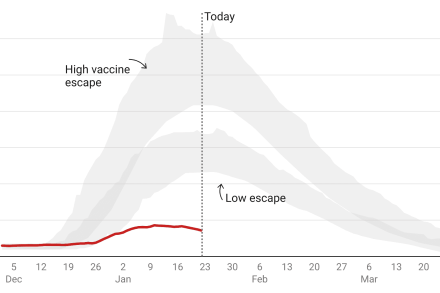2537: My Lord! – solution
The exchange that gave rise to the expression CURATE’s (19 Down) Egg was ‘I’m afraid you’ve got a bad egg, Mr Jones’, ‘Oh no, my Lord (puzzle’s title), I assure you, parts of it are excellent’, from a George du Maurier cartoon in Punch (1895), widely accepted to be based on a similar cartoon in the magazine Judy in the same year. First prize Stephen Clarkson, Ipswich, Suffolk Runners-up Pam Dunn, Sevenoaks, Kent; G.H. Willett, London SW19





















